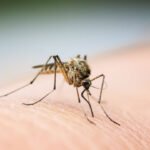According to the study, the Zika virus was found to be a very promising interim treatment for patients at high risk for neuroblastoma.
In a groundbreaking study, a group of researchers in the United States used the Zika virus to reduce or eradicate neuroblastoma tumours in mice, suggesting that the virus may one day be used as a cancer treatment.
A new study published in the journal Cancer Research Communications suggests that Zika virus may be an effective interim treatment for patients at high risk of developing neuroblastoma.
Neuroblastoma is a rare cancer that affects young children and is most commonly found in the adrenal glands or sympathetic nervous system. More than half of high risk patients don’t respond well to conventional treatments such as chemotherapy and radiation, resulting in recurrence.
Zika, which has been linked to severe birth defects among pregnant women, has been studied in recent years because it has been shown to target CD24, a developmental protein that is expressed by cancer cells.
In a study published in the Journal of the American College of Obstetrics and Gynecology, Nemours Children’s Health System researchers looked at the effects of the Zika virus on cancer cells expressing CD24 in mice that had neuroblastoma tumours with high levels of CD24.
The saline solution was given to half of the mice and the Zika virus was given to the other half. The tumour sizes were monitored three times a week.

The mice that received the Zika virus lost almost all of their tumours, with the highest dose resulting in complete elimination, according to an independent pathologist quoted by IANS.
At a follow-up of four weeks, the tumour did not reappear and the mice did not show any signs of infection or adverse reactions.
Zika virus has also been shown to be effective in treating other cancers with high CD24 levels, both in children and adults.
To determine if human patients would benefit from treatment with Zika virus, the researchers infected mouse models with human neuroblastoma tumours and used either the Zika virus or a salt solution to treat the tumours.
After 28 days, the saline solution caused tumours to grow by up to 800% while the tumours that were treated with the Zika virus shrank to about 12% of their original mass, suggesting that the tumour cells were scar tissue and not active.
After four weeks, there was no further evidence of tumour growth, suggesting that treatment with the Zika virus may improve patient survival.











